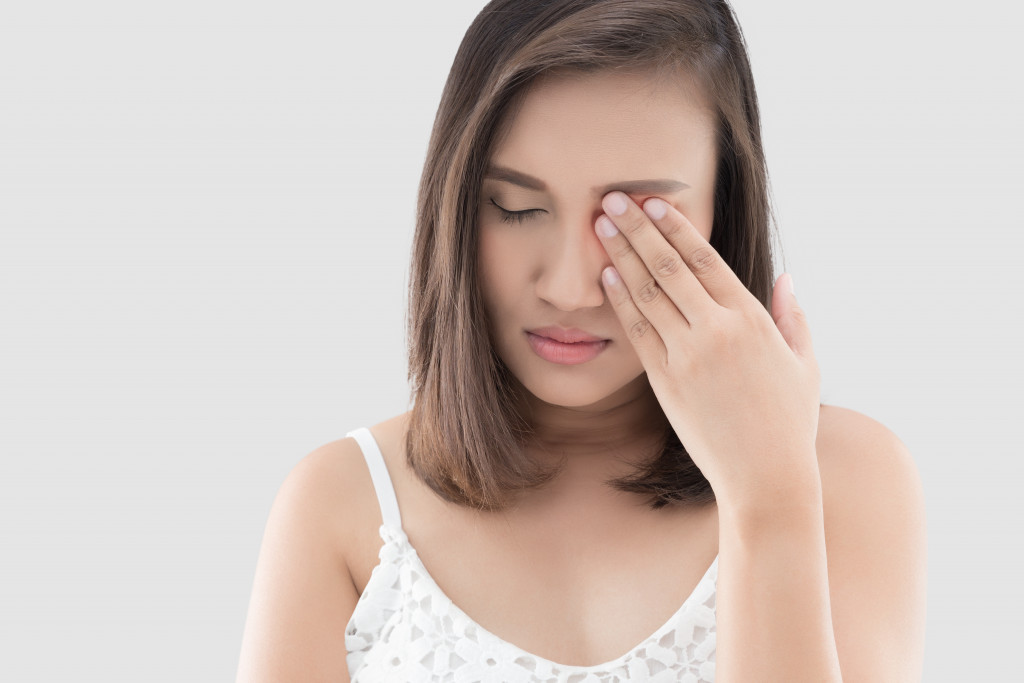- Prolonged digital device use increases the risk of visual impairment, including eye strain and sleep disruption.
- Age, digital strain, poor nutrition, environmental factors, and genetics contribute to deteriorating eye health.
- Laser treatment and regular eye exams are effective methods for treating and preventing further vision deterioration.
- Mindful use of digital devices, including breaks and adjusting settings, can help mitigate digital eye strain.
- Healthy habits, like a balanced diet and protecting eyes from harmful environments, can preserve vision health.
It’s no secret that people spend long hours on electronic screens daily. While technology is helping humanity in numerous ways, it’s also negatively impacting their vision, leading to eye strain, fatigue, dryness, and other serious eye problems. Experts have suggested that the world faces an epidemic of deteriorating eye health, and it’s becoming increasingly important to understand why.
The Visually Impaired
It’s estimated that about 14 million Americans are visually impaired. This means they suffer from some degree of vision loss, whether it be color blindness, myopia, or even complete blindness. People must be aware of the risks associated with digital use and take steps to protect their eyesight.
Leading Reasons For Eye Deterioration
Several factors can contribute to deteriorating eye health. Here are some of the leading reasons why:

1. Aging
One of the most common reasons for a decline in vision is aging. Our eyes gradually lose their ability to change focus quickly, making it harder to read fine print, see in dim light, or distinguish between colors.
The risk of developing age-related eye problems, such as cataracts and macular degeneration, increases as people age. These conditions can significantly impact your vision and quality of life. Cataracts cause clouding of the lens, leading to blurry vision, while macular degeneration affects the central part of the retina, resulting in a loss of central vision. It is essential to prioritize regular eye exams and adopt healthy lifestyle habits to help maintain optimal eye health as people age.
2. Digital Eye Strain
Staring at digital screens for prolonged periods can cause computer vision syndrome or digital eye strain. This condition includes dry eyes, blurred vision, and neck and shoulder pain. The blue light emitted from electronic devices can also affect our ability to sleep soundly, which worsens the symptoms of digital eye strain.
3. Poor Nutrition
Eating a balanced diet rich in vitamins and minerals is crucial to maintaining optimal vision health. Nutrient deficiencies can cause vision problems such as night blindness, cataracts, and blindness. Vitamins A, C, and E, minerals like zinc and copper, and antioxidants like lutein and zeaxanthin are essential for keeping our eyes healthy.
4. Environmental Factors
Environmental factors like UV rays, pollution, and dust can adversely affect your eyesight. Exposure to UV rays for long periods can increase the risk of cataracts, macular degeneration, and other eye problems. Similarly, pollution and dust can cause discomfort, irritation, and even eye infections.
5. Genetics
Some vision problems, such as myopia (nearsightedness) and glaucoma, can be inherited. People with a family history of such conditions are likelier to develop them in their lifetime. Regular eye exams are essential to detect such issues early on and prevent further progression.
Ways to Treat and Prevent Eye Deterioration
It’s important to take measures both to treat and prevent eye deterioration. Here are four ways:
Laser Treatment
Lasers have become a standard treatment for various diseases. Laser eye surgeries are used for cataracts, glaucoma, diabetic retinopathy, and age-related macular degeneration. It is generally effective in restoring or improving vision and preventing further deterioration.

Regular Eye Exams
Regular eye exams to check your vision and detect any underlying issues are one of the best ways to protect your eyesight. It’s essential to have a comprehensive eye exam every two years, even if you don’t suffer from vision problems.
Use of Digital Devices
It’s essential to practice good habits while using digital devices. You should take regular breaks, increase text size for better readability, and adjust your device’s brightness and contrast settings. It’s also a good idea to wear special computer glasses that filter out blue light to mitigate digital eye strain.
Healthy Diet and Lifestyle
A balanced diet of vitamins, minerals, and antioxidants is vital to maintaining healthy vision. Staying physically active, avoiding smoking and alcohol, wearing sunglasses outdoors, and protecting your eyes from dust and debris are necessary preventative measures.
The escalating prevalence of visual impairment and deteriorating eye health is increasingly severe. Understanding the risks associated with prolonged screen time is paramount as digital device usage rises. While aging and genetics are beyond people’s control, other factors like digital eye strain, poor nutrition, and detrimental environmental influences can be managed. People can significantly preserve their vision health by adopting healthy habits like regular eye check-ups, mindful digital device usage, and a balanced diet. Taking care of vision and the necessary steps to protect sight is essential.

